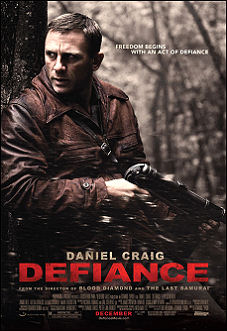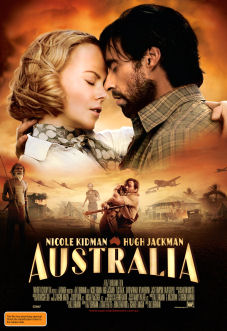I just wrote L.A. Weekly critic Scott Foundas about an interesting terminology matter that’s cropped up over the past week or so. It’s basically about the 21st Century definition of porn, or rather the expanded cultural “street” definition that doesn’t apply to sex. I love chasing new terms and understandings, but I’m not quite 100% on all the wrinkles here so I’m asking for counsel.
“I was amused by and posted a comment from a reader who said that Revolutionary Road “looks to be the Citizen Kane of Gen X marital-strife porn.” It may be that a certain party on the DreamWorks marketing team has taken this as a slam against the Sam Mendes film, which it isn’t. What ‘porn’ means in this context is (and tell me if I’m wrong) an obsessive waist-deep immersion in any intense or demanding or melodramatic activity, be it war or Wall Street or baseball or politics or anything.
“In your L.A. Weekly review of Body of Lies,” I continued, “you used the term ‘terror porn,’ which came from a colleague who had amusingly used this term to describe the entire wave of recent Middle East Hollywood espionage movies — Syriana, The Kingdom, Rendition, Body of Lies. Does this mean your friend regards these films as somehow lewd or marked by questionable taste? Not unless you’re Ed McMahon. He’s saying they’re extremely immersive, whole-hog experiences. I mean…right?
“Does ‘porn’ in this context allude to something obsessive or repetitive? I’m not sure if it does. What do you think? I’ve only been using this term recently. I do know that the older crowd flinches when they hear it, presuming that it means something icky or distasteful. A journalist friend has this same reaction yesterday, but he’s now coming to terms with the new definition.
Foundas replies: “Basically, I think ‘porn’ when it is used in the context of ‘terror porn’ (per the colleague I cited in my Body of Lies review) or “disability porn” (as I referred to Julian Schnabel’s The Diving Bell and the Butterfly) or even ‘torture porn’ (which is probably where all these other ‘porn’ derivations started) has less to do with obsession and repetition than with a certain superficiality or tastelessness — in other words, the idea that the thing being classified as ‘porn’ is somehow being used shamelessly to manipulate or titillate the audience, without any serious comment being made on the subject at hand.
“So the person who says that Revolutionary Road looks like ‘the Citizen Kane of Gen X marital-strife porn’ probably means to imply that somehow the iconography of middle-class domestic unrest is being used for its iconographic value and little deeper meaning. Of course, it’s partly an inane comment, in that Revolutionary Road takes place in the 1950s, so it has nothing whatsoever to do with Gen X, but I digress.”
[Wells comment: I took the GenX thing to mean an allusion to Kate and Leo’s own generational alignment, although the reader may have cooked it up in ignorance of the ’50s backdrop in Revolutionary Road.]
“To offer another example, I myself tried to address some of what you seem to be getting at here in my LA Weekly review of Grace is Gone last December, where I wrote:
“[Strouse has] devised Grace Is Gone to work on our sentiments the way a porn movie works on our libidos — only Strouse postpones the money shot with 80-odd minutes of emotional foreplay en route to the inevitable, orgiastic climax where Stanley finally spills the beans and the girls spill forth the entire contents of their tear ducts. It’s a horribly contrived bit of catharsis, and, as if to underline the crassness of his instincts, Strouse drowns out the dialogue of that crucial scene with music — a reminder that, in all pornography, talk is expendable.”
Wells response: If Foundas’ definition of porn (“shameless manipulation or titillatation of the audience, without any serious comment being made on the subject at hand”) is more commonly understood than my own (“an obsessive waist-deep immersion in any intense or demanding or melodramatic activity”) then it was wrong — incorrect — to run that “Citizen Kane of GenX marital-strife porn” line because no one’s seen Mendes’ film and has any clue if it’s shamelessly manipulative or not. I rather doubt that it is, knowing Mendes’work as I do. So it’s probably best to drop it and put the whole porn issue to bed.




